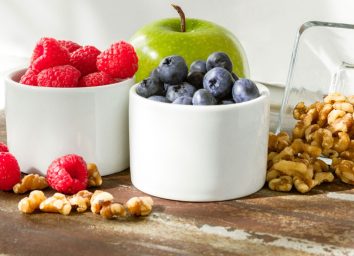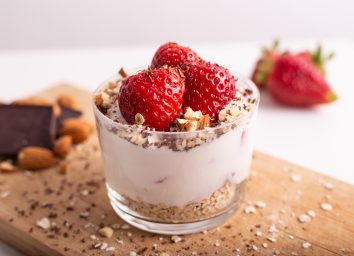12 Diet ‘Facts’ That Are Actually False

He said, she said… we get it. Everyone has heard something different and now you and your friends are in uproar at the dinner table trying to sort through deceptive information. We feel your frustration; that’s why we have compiled a list of common food myths so you know the final verdict, once and for all. And for more insights into what the experts think about things the non-experts say or do, check out our article from when 21 Nutritionists Confess Their Pet Peeves!
Eating Late at Night Causes Weight Gain

There’s actually very little evidence that connects eating late in the day with weight gain, says Alissa Rumsey, MS, RD, and spokesperson for the Academy of Nutrition and Dietetics. “It’s the extra calories you eat, not the time you eat them, that causes weight gain,” Rumsey explains in regards to debunking the idea that eating late at night slows your metabolism. Essentially, if you did not have the chance to eat dinner at 6 p.m. like you normally do, then eating at 9 or 10 p.m. will not cause you to pack on the extra pounds. Phew! It’s if you decide to mindlessly eat in the middle of the night—after you’ve already consumed a day’s worth of meals—when it becomes a problem.
Fruit Has Too Much Sugar
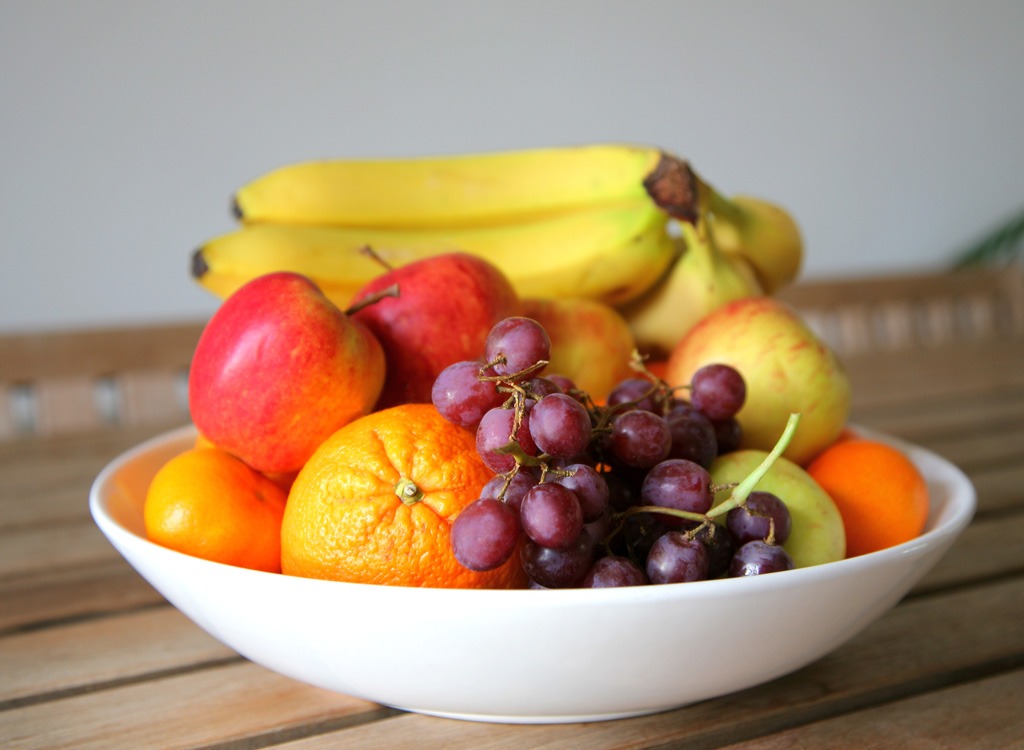
Rumsey has also confirmed that the fruit in sugar (fructose) is not credible for your stomach fat. She emphasizes that fruit contains a multitude of vitamins, minerals and antioxidants whereas a candy bar, which also comprises sugar, solely provides calories and no essential nutrition. She also says that the fiber in fruit balances out the effects of its sugar in the body. Since fiber takes a longer amount of time to digest, it prevents a catastrophic spike in blood sugar and insulin from occurring. Have you ever heard of someone getting a sugar rush from a strawberry? Of course not, and now you know that fiber is the reason why. Rumsey continues to say, “That also means your body has more time to use this sugar as fuel for energy, instead of storing it as fat.” Check out this list of high fiber foods for inspiration and please, don’t be afraid to eat fruit.
Vegans Never Get Enough Protein
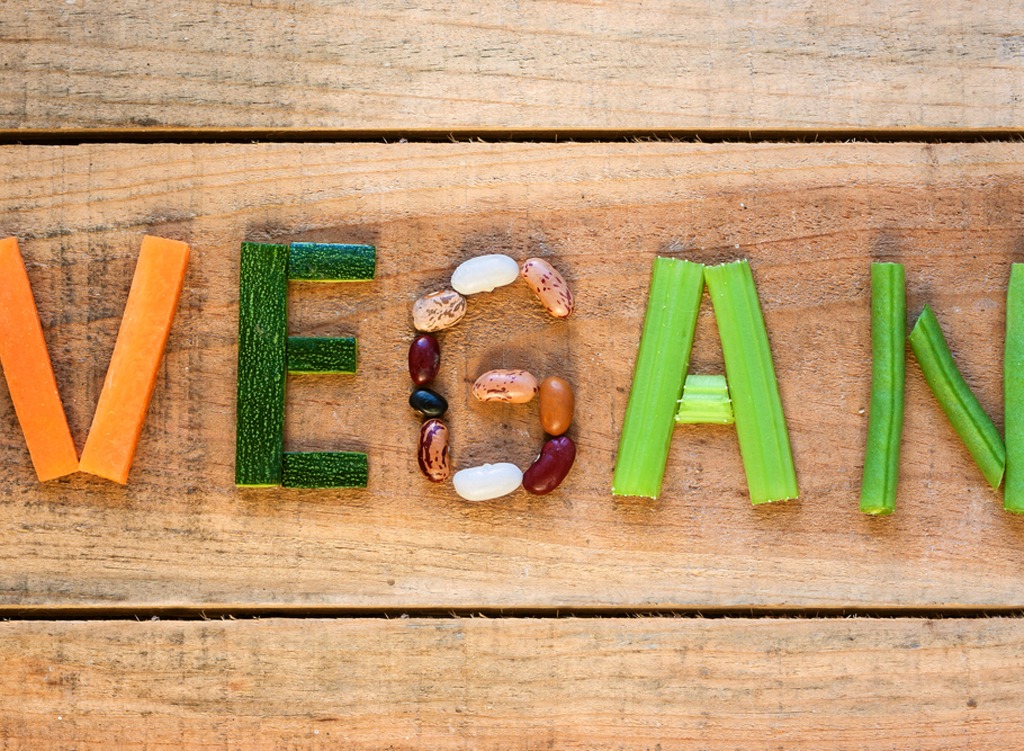
According to the Vegetarian Resource Group, only about one calorie out of every 10 we take in needs to come from protein. In a protein-obsessed society, this may be hard to digest. Literally. Things that are coined vegan foods like tofu, tempeh, whole grains, spinach, nuts, beans, and legumes are all chockful of protein. You just have to make sure you eat enough of them throughout the course of the day, which is what you should be doing anyway! Your body can only synthesize 30 grams of protein per sitting, so if you are chowing down on anything greater than that, consider it being stored as fat. The Harvard School of Public Health says it’s the “protein package” that truly matters, as in the other nutrients that are packed in the food item. For example, a cup of cooked lentils delivers nearly the same amount of protein as 3 ounces of beef, but without any of the fat. Try slicing part of an avocado over your bowl of lentils for some healthy fats!
Luna Bars Will Make Men Grow Breasts

This is my all time favorite myth. The boys on the cross country team used to joke about this all the time as the girls munched on Luna Bars, aka the “Whole Nutrition Bar for Women.” They would say, “We would grow man boobs if we ate those estrogen bars!” OK, first thing is first, there is no estrogen in these bars. They are directed at the female market solely because they are fortified with nutrients females typically need more of and may have trouble receiving in their diet. Iron is a great example of this, because women need more than men due to menstruation. As of just recently, the company completely redesigned its logo; it now reads, “Whole Nutrition Bar.” So, boys? You can stop freaking out now; you will not undergo hormonal changes after eating Luna products.
Eating Less More Often Helps You Lose Weight

Let’s make something clear here: eating every 2-3 hours (about 6 smaller meals a day) will not make you gain weight. However, it will not speed up your metabolism, either. The total amount of calories you eat in a day’s time determines your body’s metabolic response—not how infrequently or frequently you consumed them.
Microwaves Cause Cancer

Naturalists and hippies alike say that the intensity of heat produced by microwaves genetically morphs the food. Admittedly, I used to be one of those people. Others have also feared that the small amount of radiation that’s emitted causes cancer. Fortunately, Eat This! has come to the bottom of this and concluded that microwaves are perfectly safe. Cancer Research UK has confirmed that microwaves do not make food radioactive; they merely heat the food by producing radiation, which is absorbed by the water molecules in the food itself. Ultimately, this makes the water molecules in the food vibrate and produce heat. The nutritional value of fruits and vegetables can be altered in the microwave, however, if they’re cooked for too long and in too much water. Realistically speaking, any form of heat (i.e. cooking) often destroys some of the enzymes in produce, so just be mindful of that as you punch in the number of seconds! And to really feel better about your microwaving habits, find out the 7 Foods You Should Never Nuke.
Coffee is Bad for You

Harvard University has given us the lowdown on coffee—and not only does the beverage give you more energy for your workout, it also helps prevent against a variety of health issues. For example, a study that tracked the coffee consumption of 125,000 participants over the course of 18 years, indicated that women who drank more than six cups of coffee per day reduced their risk of developing type 2 diabetes by almost 30 percent. If you can handle the caffeine and have normal blood pressure, by all means, enjoy a mug or two.
Vitamin C Cures Colds
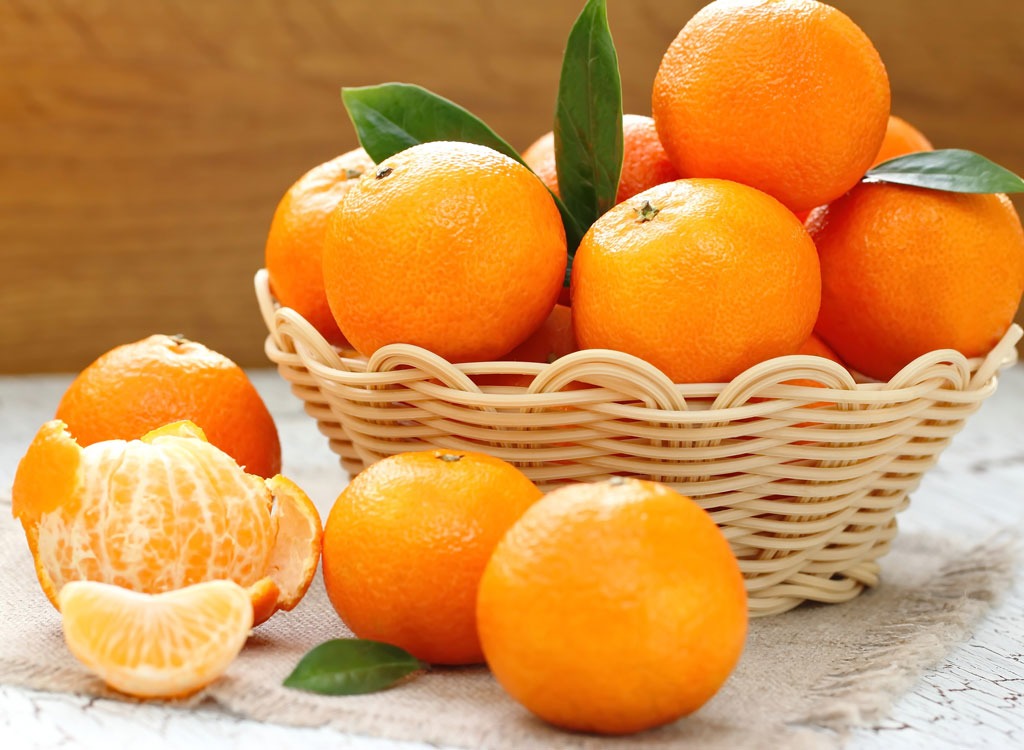
“Drink your orange juice!” Your mother may have said to you if you caught a cold growing up. For years, vitamin C has been the answer to treating colds. However, there is no scientific backing behind this theory. But that’s not to say It doesn’t aid in the body’s absorption of iron; it can even help metabolize protein. But sorry, nothing about this nutrient zaps away that pesky cold.
Agave is Better for You Than White Sugar
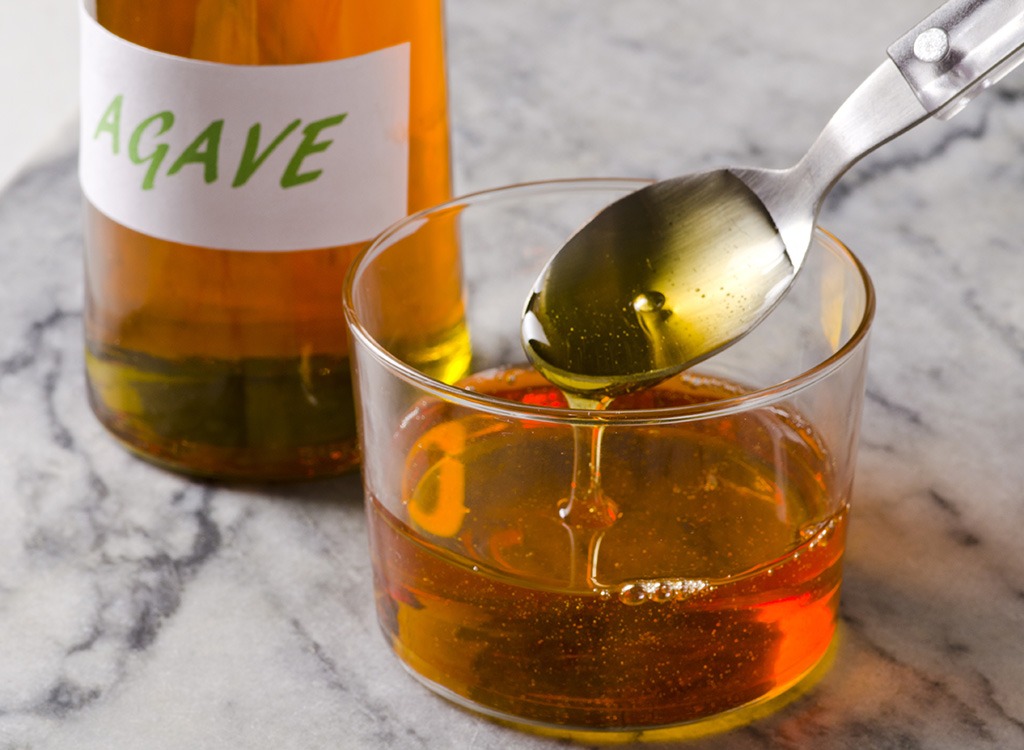
Rumsey has helped us debunk this common misconception, as well. She says that agave is branded to be more natural or less processed than table sugar. The reality? The agave offered in stores is actually a highly processed product. And both table sugar and agave are made of glucose and fructose! “Once you ingest them, your body has no way of knowing where that glucose and fructose are coming from, and they are treated the same. No matter which type of sweetener you’ve eaten,” Rumsey says. Obviously, too much sugar will not aid you in your weight loss quest, so it’s best to use both sparingly, if at all!
Carbs Make You Fat
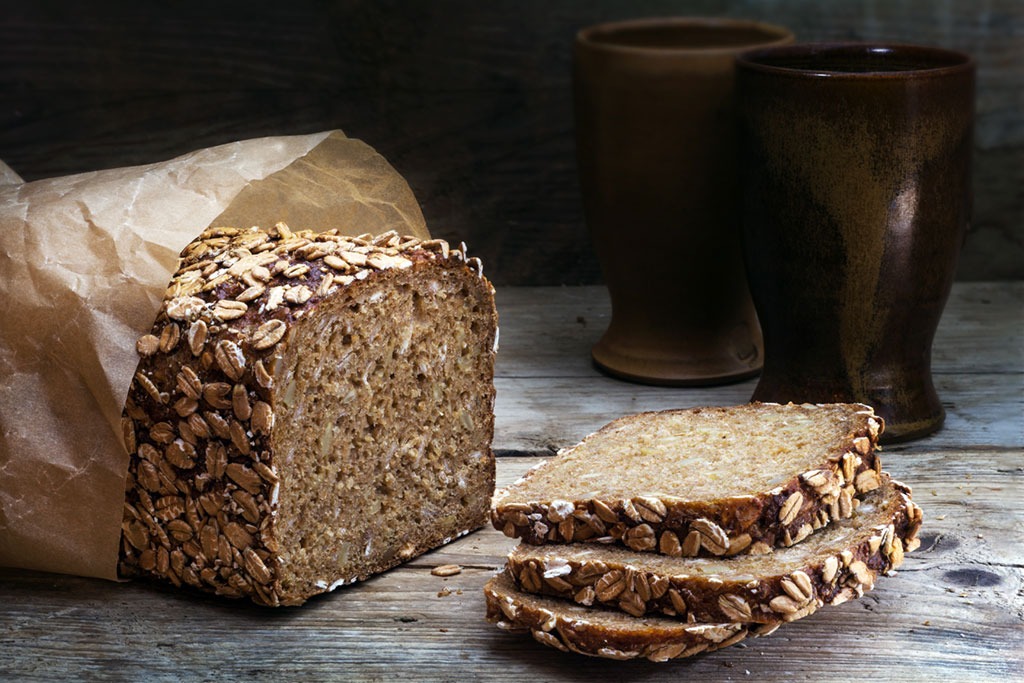
Um, hello! Your diet should be high in carbohydrates. Fruits, vegetables, beans and grains all fall under that category, not just bread and pastas alone. The USDA’s Dietary Guidelines show us that 45 to 65 percent of our diet should be devoted to carbohydrates. Carbohydrates are the macronutrient responsible for giving you the energy to perform daily tasks. Think about putting carbohydrates in your body as putting gasoline into a car; without sufficient fuel, the car will not be able to run. Similarly in the body, minimal carbs yield minimal endurance.
Low-Fat Diets Are Best for Weight Loss
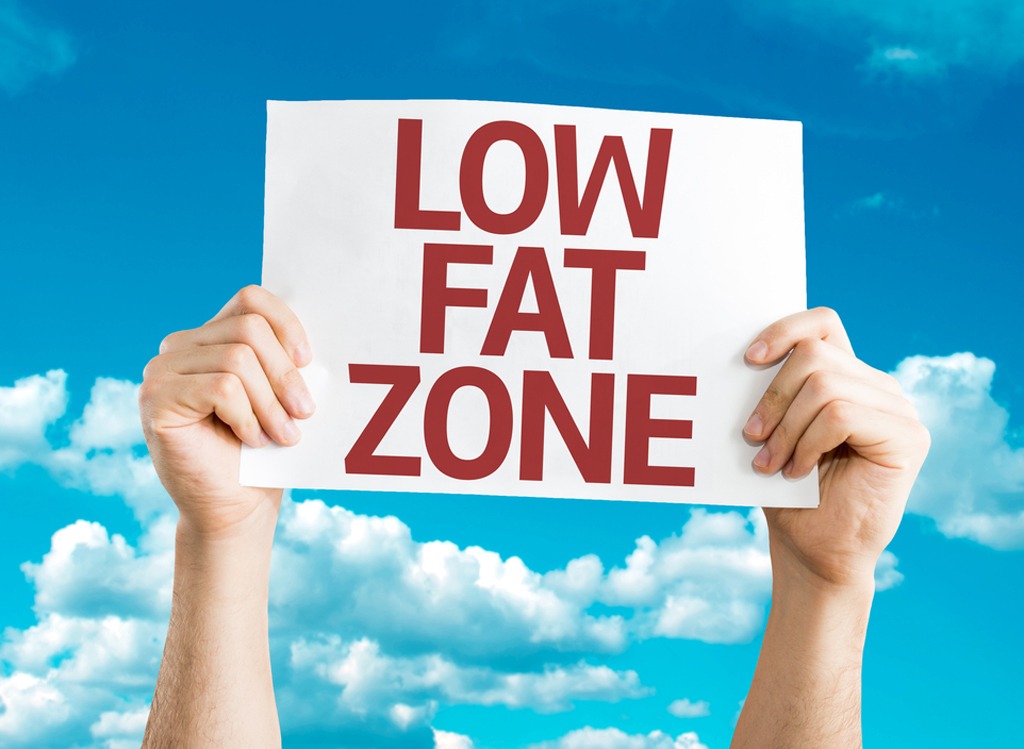
If you have ever read Michael Pollan’s novel In Defense of Food, you will see that the low-fat diet is not the route you want to take. Supermarkets are laden in low-fat snacks and dairy products. But does that necessarily mean they are the best for you? Not at all. In fact, they are even worse for you. When you rid of a food’s healthy fats, you rid of a great deal of the food’s natural nutrition stores. And what do you receive in return? A plethora of additives and fake sweeteners that provide no nutritional benefits to your body. Also, the lack of fat eliminates the satiety factor, which ultimately causes you to eat more it. By that point, you have already eaten double the calories, when you could have just eaten the full-fat version in the first place.
Protein Bars Are Always a Healthy Option
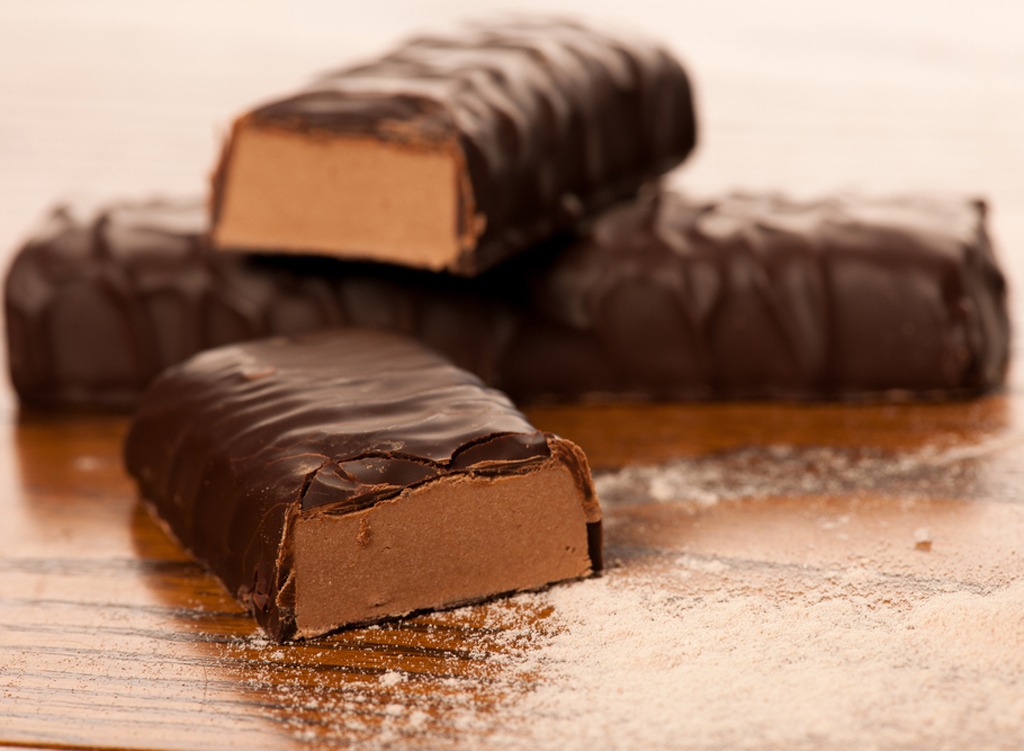
First of all, it is important to address whether or not the protein bar is meant to be a snack or a meal replacement. Because calorically speaking, there is quite a difference! If it’s supposed to be a snack, it’s best to select one that is 220 calories or under. If you are on a time crunch and cannot make it out for a bite to eat, feel free to replace it with a protein bar that, at most, is 400 calories. You don’t want to ruin your projected weight loss plan because of an energy bar that’s loaded with synthetic ingredients and sugar.
Which brings us to our next topic of discussion: the ingredients. After pondering on what purpose your protein bar will serve, you will want to scavenge through the list of ingredients. Here is a helpful hint: if it takes you more than 30 seconds to read through the list, then it’s bound to have a plethora of suspicious components mixed in. I.e., things you don’t want in your body! If the protein bar has whey protein, calcium caseinate, P-protein, brown rice, or hemp, then snag it! These types of protein provide the best type of branched chain amino acids for muscle growth. Oh, and be sure to check the sugar content; if it has more than 30 grams of sugar, ditch it. You can eat a Hershey’s milk chocolate bar for less sugar.

